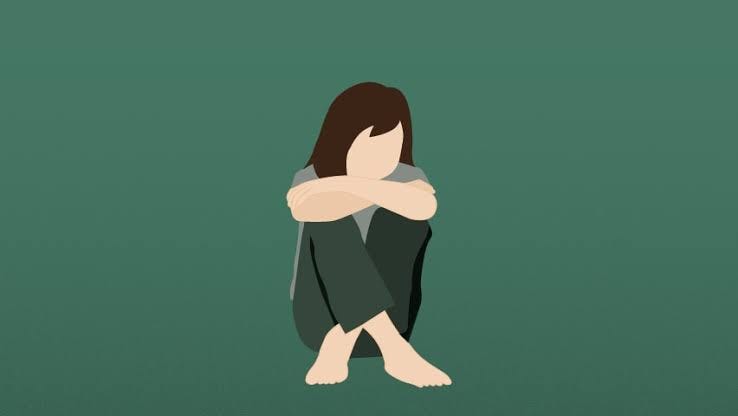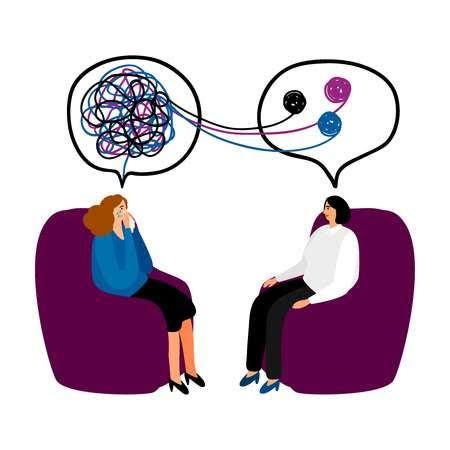How To Know When You Need Help With Depression

Life is of ups and lows. Even the mighty mountains have high peaks and low steeps, so it is only normal for us to feel low from time to time.It is common to feel blue occasionally, but if you end up feeling low all the time, then it is something to be considered. While depression is an overused term on a day to day basis, if there is adequate and authenticated knowledge on the same is a matter of question. Especially the passing away of a well known Indian celebrity and all the buzz over mental health has caused half-baked information on mental health to take a stroll. It does create a responsibility among mental health professionals to educate and advocate people with actual mental health facts and information. So, let’s get a little perspective on depression through this article!

Sad Or Depressed?
First things first, let’s break down something. There’s a vast difference between feeling sad or low and having depression. Feeling low or sad is a response to some happenings or situations in our life which didn’t go the way we want. While feeling sad will pass away eventually, depression is something that is not trivial. Depression is a mood disorder that causes lowered moods for a large amount of time. More often the source of depression is not known or visible upfront. Most of the time, depression is an accumulated response to many strenuous factors. Depression is not caused by one exact thing but by a combination of many events and circumstances. There are different types of depression that are caused due to various factors like lifestyle habits, genetics, life events, and much more
5 Signs Of Depression:
Let’s look at a few obvious signs which can indicate that you could have depression or be on the path to depression. By knowing which, you can be alerted to seek help.
- 1. Lowered and unstable moods
- 2. Erratic sleep pattern
- 3. Disrupted appetite
- 4. Hopelessness
- 5. Excessive lack of energy
1. Lowered And Unstable Moods
A person suffering from depression can experience extremely lowered moods. Does that mean that a person with depression is always sad with lowered moods? No. A person with depression might not have lowered moods all the time, but definitely, experiences lowered moods for substantially large periods.
In psychiatric research on clinical depression, it was found that people with depression often experience unstable highs and lows in moods compared to those who do not have depression. Depression being a mood disorder, affects your moods first. Although it is normal to feel lowered moods when a person witnesses a major loss or devastating situation in their life, not being able to move on from it and being stuck in an endless loop of lowered moods for a long time can indicate depression.
2. Erratic Sleep Pattern
Sleep is very much associated with how a person feels. An average person needs to sleep for around a decent hour of 7–8 hours per day. A person with depression is found to have an erratic sleep pattern and vice versa. A person with depression may either oversleep or sleep very less. It’s different for each person. According to research, it is stated that sleep disorders are the core symptoms of depression. It is unknown whether an irregular sleep pattern is a contributory factor or a result of depression, but they both co-exist. An imbalance in the sleep pattern is something that needs to be fixed and is a sign of depression in most cases.
3. Disrupted Appetite
There is a quote which says ‘one can not think well, love well, sleep well if one has not dined well.’ True to the quote, is the fact that people with depression experience a disrupted appetite. While few people eat little to nothing, many others with depression tend to overeat. Research shows that a high intake of processed fast food causes depression. Also, people with depression generally tend to eat unhealthy food than those who don’t. Many people with depression have no cravings and can go for long periods without eating anything. Disruption in food intake takes a toll on mental and physical health.
4. Hopelessness
All of us have a liking towards certain things or have mastered a specific niche of talent that we can exhibit. A person with depression feels hopeless for a major amount of time and finds it hard to do things that he/she used to enjoy in normal circumstances. A writer who normally enjoys writing might find it hard to write, a person who generally enjoys eating a favourite food may no longer have the craving for it, and someone who loves to dress up can find it hard to do the same. In research, it is found that hopelessness and depression can hit people from all cultures and socioeconomic statuses irrespectively. Hopelessness along with a great aversion to coping with life can turn into self-hatred and low self-esteem issues for a person struggling with depression.
5. Excessive Lack Of Energy
Depression sucks out the energy in you. A person with depression feels an excessive lack of energy and extreme fatigue. Most people with depression find it hard to get out of their beds every morning. Even day-to-day activities seem like a big task for a person with depression. According to research, it is found that fatigue is a residual symptom of depression. Lack of self-care is majorly seen in a person with depression, which might be due to little willingness and hope toward life and a lack of energy in the body.
OK, I’m Feeling Depressed… So Now What?
Getting Help :
The above are a few obvious symptoms that a person suffering from depression would experience. So, the obvious next question in mind would be how to overcome depression. Below are a few tips.
- Enriched nutrition
- Good sleep
- Medications
- Getting adequate sunlight exposure
- And most importantly — Behavioural therapy
Yes, therapy is a great help for a person with depression. A therapist will assess your problems and assist you on the path of coping with and overcoming depression, using scientifically proven methods.

Although it is good to believe in the phrase ‘This too shall pass’ and be optimistic, you need to be aware that neglecting what your body and mind indicate to you can lead to something severe. The above-indicated factors are just a pretext to indicate depression and are not a professional diagnosis in itself. If you relate with some of the above signs and want to do some good to your mind and body, get in touch with us, to connect with the best therapists who will help you heal.
Related Articles

How to Practice Self-Care in an Indian Household Without Feeling Guilty
Self-care is often seen as a luxury in Indian households, where responsibilities and family expectations take priority over personal well-being. From childhood, we are taught to put others first, to serve, to sacrifice, and to constantly meet societal and family obligations. This deeply ingrained cultural mindset often makes self-care feel like an act of selfishness.

Employee Motivation 2.0: Modern Hacks vs. Traditional Methods
Sitting in his corner office, Amit, the CEO of a fast-growing tech firm, rubbed his temples in frustration. “We’re losing good people,” he muttered, scanning the latest resignation letter on his desk. “Our turnover is skyrocketing, productivity is slipping, and I can feel the low energy in the office. What’s going wrong?”

Toxic Relationships and Mental Health: Recognizing the Red Flags
Relationships should bring joy, support, and a sense of belonging. However, not all relationships are healthy. Some become emotionally draining, mentally exhausting, and even harmful. When a relationship turns toxic, it can severely impact a person's mental health, leading to anxiety, depression, and a loss of self-worth.

Parental Pressure and Mental Health: The Unspoken Struggle of Indian Youth
Parental expectations are a universal experience, but in India, they often come with immense pressure. From scoring high marks 📚 to securing a high-paying job 💼, the burden on Indian youth is immense. While parents want the best for their children, excessive expectations can take a toll on mental health, leading to anxiety, depression, and even suicidal thoughts.

The Mental Health Crisis Among Indian Students: What Can Be Done?
In recent years, the mental health crisis among Indian students has become a growing concern. The pressure to excel academically, social expectations, economic constraints, and personal struggles create a highly stressful environment that takes a toll on their mental well-being. While awareness about mental health is increasing, there is still a significant gap in access to proper care and support. Addressing this issue requires a collective effort from educational institutions, parents, policymakers, and mental health professionals.

How to Take Care of Your Mental Health in a Fast-Paced Indian Lifestyle Online Counseling in India: A Game-Changer for Mental Well-being
CareMe Health is committed to making mental healthcare accessible and stigma-free in India. Their expert therapists provide professional support through online counseling, helping individuals manage stress, anxiety, depression, and relationship challenges. Whether you need a listening ear, coping strategies, or deep therapeutic interventions, CareMe Health is here to guide you toward mental wellness.
